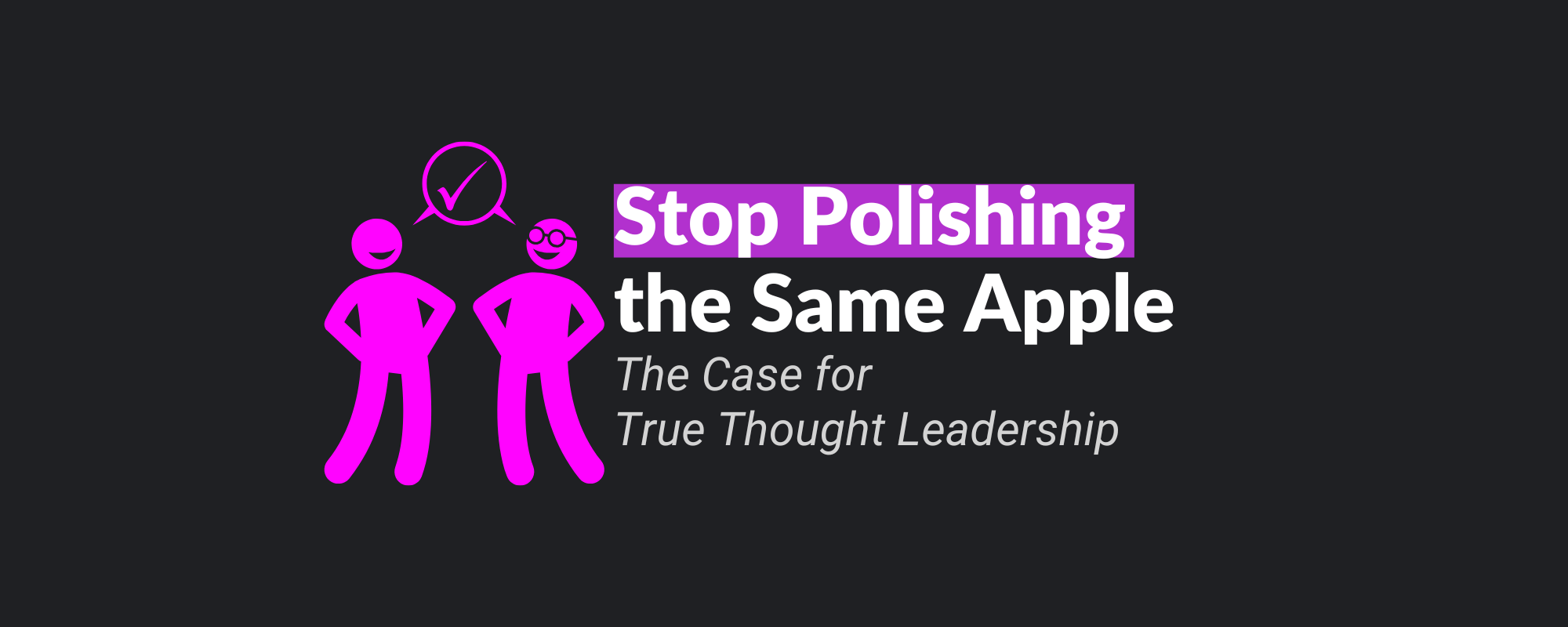Stop Polishing the Same Apple: The Case for True Thought Leadership


Most marketing strategies in Saudi Arabia fail before they launch. Not because the people are incompetent, but because the thinking is flat. One brief. One KPI. One dimension. The market moves in five directions at once. The question is whether the marketer has kept up.
Being exceptional is isolating. You're wired differently. What others see as extra, you see as standard. Most will never operate at your intensity, and that's the price of being rare. Stay obsessed, stay relentless, stay uncommon. Just don't expect the world to keep pace.
Campaign thinking is dead in Saudi. Vision 2030 demands ecosystem marketing—sustained narratives that evolve over years, not quarters. Stop planning in bursts. Start building for 2030
Your mind is a relentless chatterbox, hijacking your focus and fueling stress. 10% Happier isn’t about enlightenment—it’s about control. Dan Harris, once a skeptic, breaks down how meditation sharpens decision-making, lowers reactivity, and gives professionals a competitive edge—without the fluff.
Subscribe to get the newest posts in your inbox! I write a ton, so you’ll get a few emails, but hey, who needs another newsletter when you’ve got a holistic one?